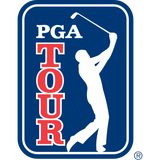
USGA enacts plan to prevent a repeat of the 2016 U.S. rules debacle
ERIN, Wis. — The USGA wasted no time righting its wrongs after the 2016 U.S. Open at Oakmont.
USGA officials said Wednesday that after months of assessing what went wrong a year ago the association has instituted changes that it's confident will prevent the championship from the kind of rules debacle that marred the Oakmont Open. (Lest you've forgotten, Dustin Johnson played much of the final round under the shadow of a rules infraction that he may or may not have committed on the 5th green, which spun the tournament into total chaos.)
The plan, as detailed by John Bodenhamer, the association's governance chief, has three primary goals: to expedite the ruling process during tournaments, to be more decisive in decision-making, and to effectively communicate with players and media.
To accomplish this mission at Erin Hills the USGA will use four on-course video review locations equipped with tablets. Those devices will primarily be used by a mobilized five-person rules committee, which will be led by a newly appointed chief referee in Thomas Pagel, the USGA's senior director of Rules of Golf and amateur status.

Bodenhamer said Pagel will be the "field general" directing the other four committee members and that any decision Pagel makes will be final. The intention of the committee is to use one of the on-course video locations to review incidents in question as quickly as possible.
Also new this year, and for the first time since 1991, walking referees won't be assigned to each group. Instead the USGA will transition to a "stationary referee model," in which officials will be assigned to two or three specific holes instead of a group of players. The thinking is that the refs will be better equipped to answer any rules questions that arise if they familiarize themselves with just a few holes.
"We feel good about our ability to act quickly for the benefit of the game," Bodenhamer said. "I think it represents that we've been listening and we're prepared to act in the best interests of the game."
Which isn't to say that last year's PR hit didn't hurt.
"You would think something like what happened the last couple of years would affect just the championship department, maybe the rules department," Davis said. "But it affects the whole organization. … So, of course, we want to avoid those things.
"We're human," he added. "We know we've had some issues the last two years. … So moving forward we want a nice, smooth U.S. Open."

This article originally appeared on

